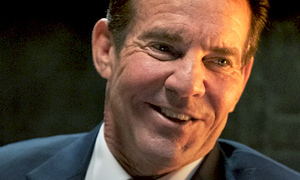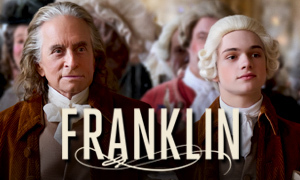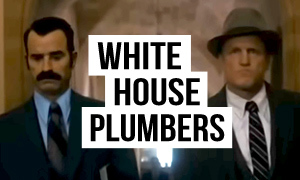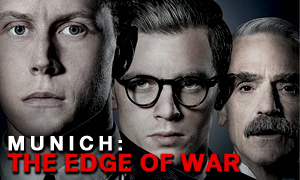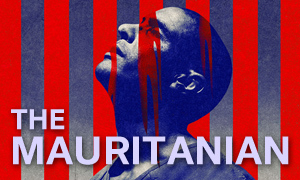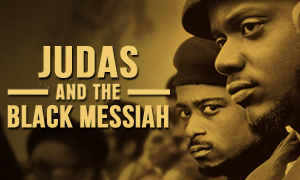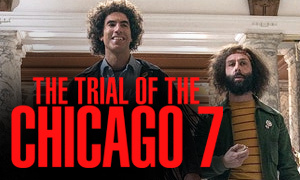Franklin: History vs. Hollywood
Michael Douglas
Born: September 25, 1944
Birthplace:
New Brunswick, New Jersey, USA
Benjamin Franklin
Born: January 17, 1706
Birthplace: Boston, Massachusetts Bay, British America
Death: April 17, 1790, Philadelphia, Pennsylvania, USA (pleuritic attack)
Portrait by Joseph Duplessis, 1778
Noah Jupe
Born: February 25, 2005
Birthplace:
Islington, London, UK
Temple Franklin
Born: February 22, 1760
Birthplace: London, England, UK
Death: May 25, 1823, Paris, France
Bio: Ben Franklin's Grandson
Painted by Mather Brown, 1782
Eddie Marsan
Born: June 9, 1968
Birthplace:
Stepney, London, England, UK
John Adams
Born: October 30, 1735
Birthplace: Braintree, Massachusetts Bay, British America
Death: July 4, 1826, Quincy, Massachusetts, USA
Bio: American Commissioner to Negotiate Treaty of Paris
Assaad Bouab
Born: July 31, 1980
Birthplace:
Aurillac, Cantal, France
Pierre Beaumarchais
Born: January 24, 1732
Birthplace: Paris, France
Death: May 18, 1799, Paris, France
Bio: Oversaw Scheme to Secretly Supply Aid to the American Rebels
Ludivine Sagnier
Born: July 3, 1979
Birthplace:
Saint-Cloud, Hauts-de-Seine, France
Madame Anne-Louise Brillon
Born: December 13, 1744
Birthplace: Paris, Kingdom of France
Death: December 5, 1824, Villers-sur-Mer, Kingdom of France
Bio: French Musician who Franklin Befriended While in France
Thibault de Montalembert
Born: February 10, 1962
Birthplace:
Laval, Mayenne, France
Comte de Vergennes
Born: December 29, 1719
Birthplace: Dijon, France
Death: February 13, 1787, Versailles, France
Bio: French Minister of Foreign Affairs
Théodore Pellerin
Born: June 13, 1997
Birthplace:
Québec, Canada
Marquis de Lafayette
Born: September 6, 1757
Birthplace: Château de Chavaniac, Auvergne Province, Kingdom of France
Death: May 20, 1834, Paris, Kingdom of France
Bio: French Aristocrat who Participated in the Revolutionary War in America
Daniel Mays
Born: March 31, 1978
Birthplace:
Epping, Essex, England, UK
Edward Bancroft
Born: January 20, 1745
Birthplace: Westfield, Massachusetts, British America
Death: September 7, 1821, Margate, Kent, United Kingdom
Bio: American Physician and Spy for Both the U.S. and Britain
Which part of Benjamin Franklin's life is the Apple TV+ series based on?
The eight-episode series focuses on Benjamin Franklin's unofficial trip to France in December of 1776 at age 70 to secure an alliance between the United States and the Kingdom of France during the American Revolutionary War. Though he had no diplomatic training, Franklin's goal was to convince France, then an absolute monarchy, to fund America's experiment in democracy. After much negotiating, spearheaded by Franklin, the Franco-American Alliance was formalized with the signing of the Treaty of Alliance on February 6, 1778. The treaty was a military pact in which France agreed to provide supplies to the United States.
Is Franklin on Apple TV+ based on a book?
Yes. As we embarked on our fact vs. fiction analysis, we learned that the Apple TV+ limited series is based on the 2005 book A Great Improvisation: Franklin, France, and the Birth of America by Stacy Schiff.
Did Benjamin Franklin take his grandson with him to France?
Yes. The Franklin true story confirms that he took his 16-year-old grandson, William Temple Franklin (referred to as Temple Franklin), with him on his 1776 trip to France. Benjamin Franklin had taken over custody of his grandson after his extramarital son, William Franklin, a Loyalist and the governor of New Jersey, was put in prison during the Revolution and forced into exile in Britain. By that point, William had already abandoned his son Temple, who was a bastard like his father, and had left him in a foster home in the UK before he returned to America. Benjamin Franklin went to the UK and retrieved his grandson Temple, hoping to mend some of the damage William had done.
While in France, Temple acted as his grandfather's secretary and would later be appointed Secretary to the American delegation at the Treaty of Paris (1782-1783), a position he got due to his grandfather's influence.
Did Benjamin Franklin speak French?
A Franklin fact-check confirms that he spoke very little French when he arrived in France at the end of 1776. He was counting on his ingenuity, charisma, and global fame to help him engineer the alliance, which as documented in Stacy Schiff's book was marred by hostile colleagues, French informers, and British spies. The Apple TV+ miniseries opts for added authenticity by utilizing subtitles and having its French characters speak French. This differs from other recent films like Ridley Scott's Napoleon, which has its French characters, including the famed emperor himself, speaking English throughout.
As noted in the Franklin cast vs. real people section at the top of this article, many of the actors in the miniseries are also French-born, adding to Franklin's historical accuracy.
Does actor Michael Douglas capture the physical appearance of Benjamin Franklin?
Not exactly. Adorned with straggly hair and his own receding hairline, actor Michael Douglas struggles to capture the balder Franklin. At times, he looks more like an aging rockstar than the famous diplomat and statesman he's trying to embody. Douglas' Franklin is much trimmer than the real Benjamin Franklin. In an interview with IGN, Douglas said that they felt that his own rather high receding foreheadline "seemed to work" for the role. Unlike the lengths the makeup department went to in order to turn Gary Oldman into a convincing Winston Churchill, Douglas said that they opted to save hours of make-up time by fictionalizing Franklin to be thinner than he was at the time. The series does depict him as suffering from gout, which is accurate to real life. For a more accurate physical depiction of Franklin, albeit in a supporting role, see Tom Wilkinson's performance in HBO's John Adams limited series.
Was Benjamin Franklin an avid chess player?
Yes, and while in Paris, he took part in games at the well-known Café de la Régence, which was a meeting place for France's best chess players. He also wrote an essay about the game, titled "The Morals of Chess", which was published in December 1786 in Columbian Magazine.
How long was Benjamin Franklin in France?
Franklin's mission to France to secure an alliance lasted eight years, from the end of 1776 to 1785. It is considered to be his most crucial service to his country. After engineering the Franco-American Alliance of 1778, he assisted in negotiating and securing the peace of 1783, which culminated with the signing of the Treaty of Paris on September 3, 1783. The treaty officially brought an end to the American Revolutionary War with Britain. This little talked about chapter in Benjamin Franklin's life was key to the success of America in its fight for independence from Britain, taking George Washington from near annihilation at Valley Forge to triumph at Yorktown.
Was Benjamin Franklin a womanizer?
Yes. Benjamin Franklin did not have a close relationship with his common-law wife, Deborah Read, and it is well known that he had extramarital affairs. As stated earlier, his own son, William Franklin, was born out of one such affair. Despite William not being her own, Deborah helped Benjamin raise him. It's accurate that Benjamin Franklin was single during the eight years that he was in France, as Deborah had died from a stroke in 1774 (he was in Europe when she died and had not seen her in ten years). Franklin was well-known for his appetite for women and would be described as a "player" in today's terms.
Is Benjamin Franklin portrayed accurately in the Apple TV+ series?
Perhaps The Hollywood Reporter's Daniel Fienberg summed up Michael Douglas' version of Benjamin Franklin best:
I think this Ben Franklin is actually closer to the villain of the piece than the hero, and I only give a 10 percent chance that that was intentional. He's supposed to be rascally and patriotic and quick on his inflamed feet; instead, he's leering and superficial and petty and very rarely an active part of the series — almost impossible to respect in any capacity.
Similar to other recent biopics about famous men, including Napoleon, Ferrari, and Maestro, Franklin can't seem to help itself from casting its main character in a somewhat negative light, even if it's not always on purpose. While there are certainly things to criticize about Benjamin Franklin (he wasn't exactly a family man, nor was he loyal to his wife), his contribution to America's struggle for independence is undeniable.
Like so many other TV series and movies released in the past few years, the story of his crowning political achievement feels like it's been filtered through a modern-day social lens that has once again hamstrung the filmmakers from sufficiently paying tribute to the individual and his accomplishments. Instead, he's been reduced to a character who often warrants our criticism more than he welcomes our respect, which seems contrary to what we know about the real-life diplomat, a man who played a vital behind-the-scenes role in helping America secure its independence.
